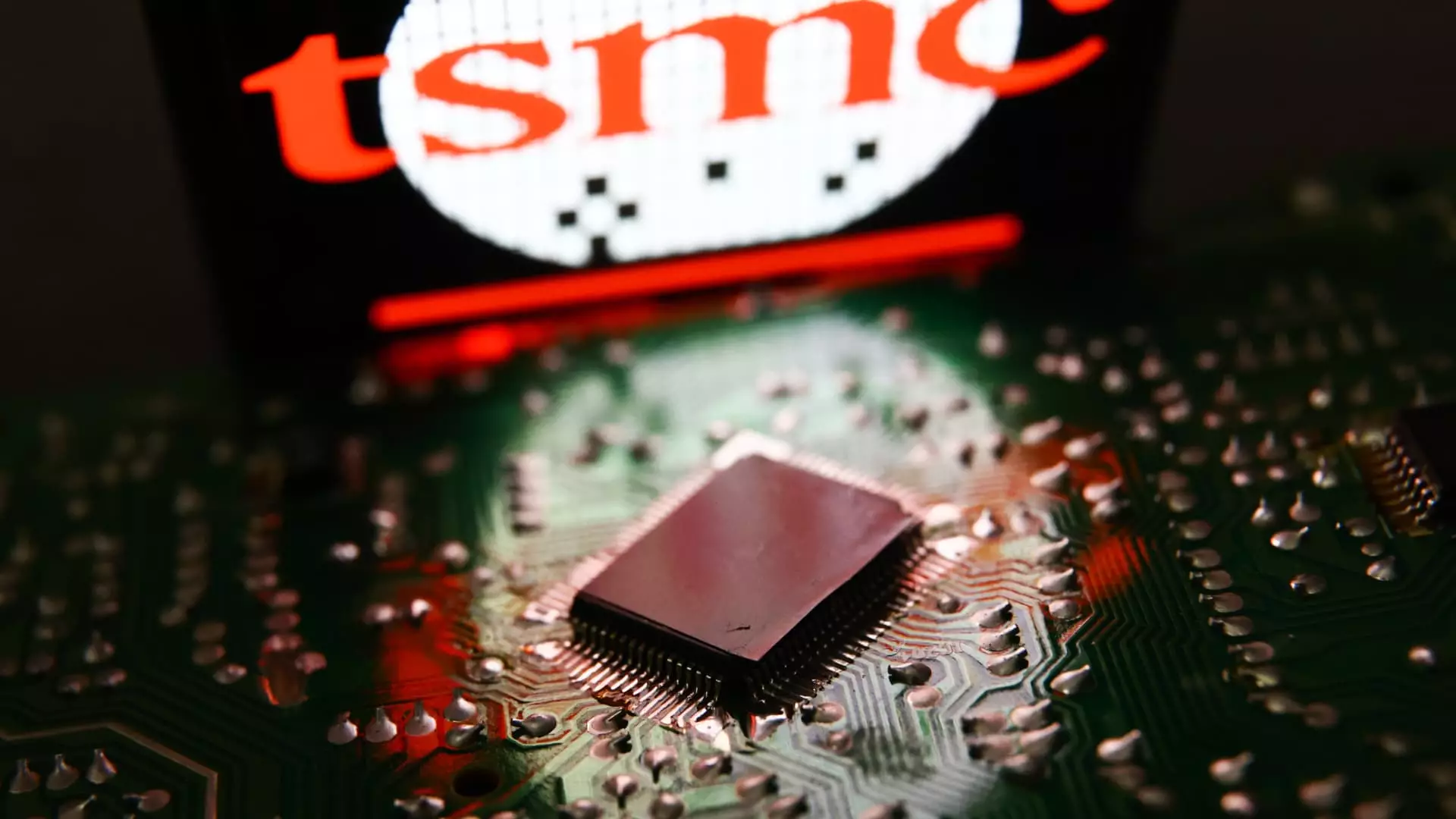Taiwan Semiconductor Manufacturing Company (TSMC) plays an integral role in the global semiconductor landscape, particularly within the domain of advanced chips utilized in artificial intelligence (AI) and graphics processing units (GPUs). As the world’s leading semiconductor manufacturer, TSMC facilitates innovations across various high-tech industries. However, recent developments concerning export regulations reflect a significant shift in U.S. foreign policy affecting the Chinese tech ecosystem, particularly firms like Huawei, which have been heavily scrutinized by the U.S. government. This situation raises pivotal questions about how international relations shape the IT landscape, particularly in a highly competitive and rapidly evolving sector.
The Recent U.S. Export Order: A Tactical Maneuver
The Biden administration’s order to halt shipments of advanced semiconductor chips to Chinese customers stems from escalating concerns regarding national security and technology leadership. According to reports, the U.S. Department of Commerce has imposed export restrictions specifically on chips utilizing 7-nanometer process technology or more sophisticated designs. This move comes in the wake of TSMC’s inadvertent involvement with Huawei’s AI initiatives, which had been highlighted by a subsequent review of a particular AI processor. The letter from the Commerce Department signals a more aggressive approach to regulate technology transfer, especially concerning items that could potentially enhance China’s capabilities in AI.
In recent months, it has become increasingly clear that the U.S. government is intent on maintaining a technological edge over China. The implications of these restrictions are broad, affecting not just TSMC but numerous other companies engaged in chip design and production. By implementing these sanctions, the U.S. is attempting to curb China’s advancements in AI technology, which could have far-reaching ramifications for both national security and the competitive balance in global technology development.
The recent export order serves as a reflection of the ongoing tensions between the U.S. and China, particularly in high-tech industries. Both Republican and Democratic lawmakers have expressed heightened concerns regarding China’s increasing involvement and potential capabilities in advanced technology sectors, prompting the U.S. to tighten its grip on semiconductor exports. The repercussions of this decision extend beyond TSMC, creating a ripple effect throughout the semiconductor supply chain and affecting firms that rely on these advanced technologies.
Furthermore, the U.S. export regulations are indicative of broader trends aimed at safeguarding intellectual property and preventing technology that could bolster adversarial capabilities. The recent communication from the Commerce Department, particularly the “is informed” letter, allows for more accelerated enforcement of licensing requirements, suggesting that such actions may continue into the foreseeable future. Indeed, this swift response mechanism means that other companies within the sector must prepare for increasingly stringent compliance demands.
Throughout recent years, the U.S. government’s efforts to impose export controls have met with varying degrees of success, often revealing complexities in execution and enforcement. The effectiveness of these measures relies heavily on cooperation from companies like TSMC and others operating within the semiconductor realm. TSMC’s commitment to remain a “law-abiding company” aligns with industry pressure to adhere to the laws and regulations, but this can also create friction where vested business interests intersect with geopolitical tensions.
The situation uncovers an evolving landscape for semiconductor companies that are now tasked with navigating a labyrinth of compliance and regulatory obligations. As the U.S. government prepares to add more Chinese entities to the restricted entity list, pressure mounts on manufacturers and suppliers to maintain rigorous standards around export controls. Such pressure may inadvertently stifle innovation, complicate international partnerships, and limit the flow of technology across borders.
Looking ahead, the stakes involved in the semiconductor industry have never been higher. TSMC and other manufacturers must carefully assess their strategies in light of these new restrictions while adapting to a shifting regulatory environment fueled by political motivations. For nations and companies seeking competitive resilience, investing in research, diversifying supply chains, and forging alternative partnerships will be imperative.
The recent export ban reflects escalating geopolitical tensions and the critical importance of semiconductors in global technology competition. As companies and governments navigate this complex landscape, the consequences of these strategic decisions will fundamentally reshape the future of the semiconductor industry and international relations alike. The unfolding scenario poses not just immediate challenges but also broader questions about the future framework of global technology interactions and the long-term implications for key players in this domain.



Leave a Reply